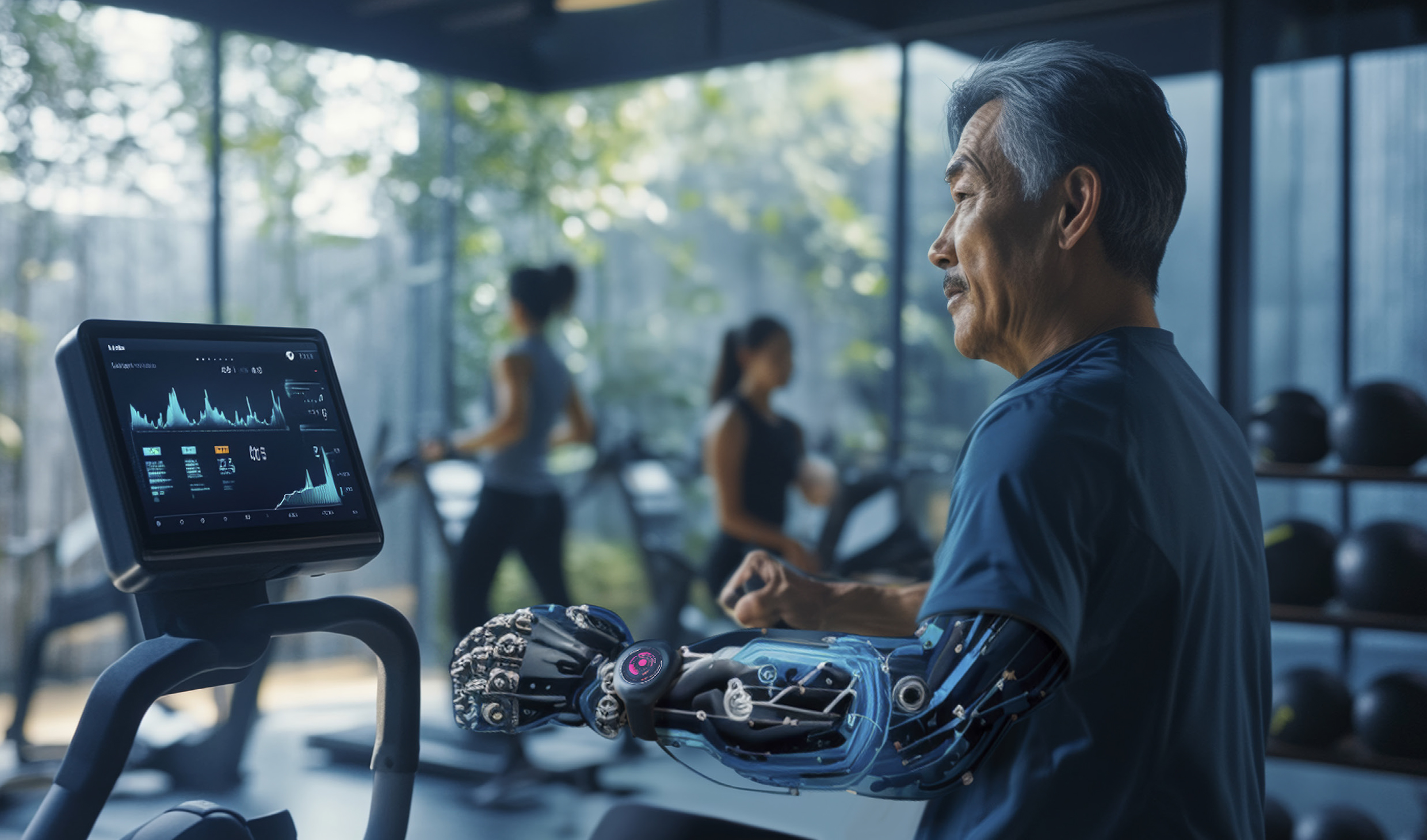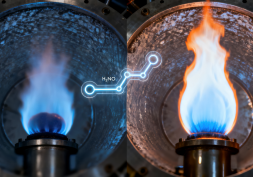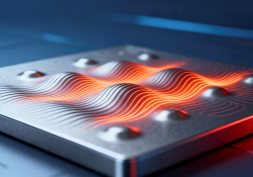The biomedically engineered biomedical engineer
Follow CDE
PDF Download

Harnessing digital devices to monitor the progress of health regimens reveals the potential of gamification to enhance adherence and optimise health.
Recall the last time you decoded a seemingly impossible riddle, claimed victory over the ‘final boss’ in Super Mario Bros., or got out of a tight situation in an Escape Room at the very last minute. You likely breathed a pleasurable sigh of relief — one charged by dopamine, a hormone secreted in a specific area of our brain known as the reward centre — and subsequently experienced an arcane rush of motivation. Game on, you uttered to yourself.
The appeal of gameplay is anything but a mystery, and the ‘feel-good’ hormone is the invisible character pulling the strings. An expert game designer pours a lot of thought into crafting challenges that consider player agency, flow, goals, preferences, motivation and rewards — all to engage the players’ dopaminergic system, inducing a sense of motivation and perseverance, ultimately engendering behavioural change.
Beyond the gaming lexicon, this strategic process is known as gamification. Astute businesses apply it to train employees and boost customer engagement. Educators use it to nudge disinterested students to complete their coursework. When gamification is harnessed judiciously, benefits abound.
Indeed, one might consider that healthcare is poised to reap the bountiful rewards of gamification.
Professor Dean Ho revealed the potential of gamification to enhance adherence to health regimens and optimise health.
This is especially pertinent against a backdrop of global ageing, where healthcare resources struggle to meet the demand for long-term, centralised care. As older adults become increasingly digitally savvy, gamification offers an opportunity, through technology, to strengthen intervention design and reach older populations with more health initiatives.
Professor Dean Ho, Head of the Department of Biomedical Engineering, College of Design and Engineering, National University of Singapore, has personally experienced the positive effects of gamification in healthcare. In his first-of-its-kind study, in which he was the sole subject, Prof Ho essentially became a biomedically engineered biomedical engineer. He explored how the marriage of data and digital technology could sustain intermittent fasting and improve health outcomes. He found that keeping an eye on vital biomarkers could in turn become a source of motivation for him to stick to his health regimens, leading to significant health improvements — an insight that could inform strategies to help older persons manage their health more effectively.
The findings were published in the journal PNAS Nexus on 30 May 2024.
Through a gaming lens
A fitness enthusiast, Prof Ho who's also the Director of both the Institute for Digital Medicine (WisDM) at the NUS Yong Loo Lin School of Medicine (NUS Medicine), and the NUS N.1 Institute for Health, grounded his work in studying the process of ketosis and its health benefits. Ketosis flicks the body’s metabolic switch to burn fat for energy instead of glucose, and is linked to weight loss and better management of type 2 diabetes. The ability to achieve this energetic switch declines during the ageing process. As such, the measurement of metabolic flexibility served as a surrogate marker for Prof Ho’s metabolic health during this study.
From May to November 2023 Prof Ho documented his journey on his regimen. He fasted for at least 20 hours daily and started each day religiously with strength or cardiovascular training. Leafy greens, lean proteins, seeds, olive oil and other Mediterranean staples formed his diet. He drank only water, black coffee and black tea, without milk or sugar. Sensors and wearables monitored his health metrics, such as blood ketone levels, blood glucose, blood pressure and body weight.
The health outcomes were remarkable. Prof Ho shed about 7.5 kilograms, gained 20% more grip strength and could lift weights 10% heavier than before.

Prof Dean Ho with a glucose monitor patch on this arm, and meals that he consumed, consisting of leafy greens, nuts, chicken breast, salmon and avocado. (Credit: Prof Dean Ho)
He also achieved the impressive feat of completing 1,000 push-ups in under 40 minutes. These results highlight the potential of combining intermittent fasting with a disciplined fitness and dietary regimen.
"Using digital health technologies to monitor my progress represents a shift towards more personalised and engaging health management."
"Using digital health technologies to monitor my progress represents a shift towards more personalised and engaging health management."
Above all, the gamification aspect of Prof Ho’s regimen was salient. “Using digital health technologies to monitor my progress represents a shift towards more personalised and engaging health management,” says Prof Ho. “By observing the dynamics in health responses to different interventions, sticking to a health regimen can be converted into a game-like experience.”
Akin to the ups and downs a player experiences in heart-thudding gameplay, Prof Ho’s ketone levels followed a discernible, repeatable pattern as he adhered to his regimen every day: high in the morning, plummeting after his workouts and soaring again before breaking fast in the evening.
"Using digital health technologies to monitor my progress represents a shift towards more personalised and engaging health management."
While this demonstrated that ketone levels fluctuate according to various activities such as fasting and exercise, it also indicates that the metabolic switch can serve as a clear and measurable ‘target’ for participants to reach.
“This means health management can be dynamically personalised at the individual level,” adds Prof Ho. “For instance, visualising how various biomarkers change and progress during a health programme can make the process more engaging — encouraging the participant to stick to the plan and achieve improved health outcomes over time.”
Data-driven incentives for healthy ageing
While Prof Ho’s regimen required a lot of discipline, the approach can be tailored to an individual’s preferences and habits for sustained user engagement. “Initiating small habits is a good way to build towards a more comprehensive health regimen,” advises Prof Ho. “It is key to enjoy the process, and not jump right into an intense fasting regimen.”
As global ageing unfolds, managing concomitant disorders such as metabolic diseases and frailty will be an increasingly essential component of the demographic shift. New approaches to promote healthy behaviours at the population level will therefore be key. This study raises a question: can personalised health interventions infused with digital technology be effectively implemented on a large scale?
Gamification, the welcome byproduct of digital transformation in healthcare, may address the psychological aspects of health management, and may therefore provide better — as well as far-reaching — strategies for health promotion, prevention and self-management of chronic conditions. This could alleviate the already-strained health system — by encouraging non-critical patients to complete assigned tasks and reducing paperwork, clinic visits and other administrative tasks. Perhaps weaving an element of fun into healthcare could be the next winning strategy for health optimisation.
Read More
View Our Publications ▏Back to Forging New Frontiers - October 2024 Issue
If you are interested to connect with us, email us at cdenews@nus.edu.sg









